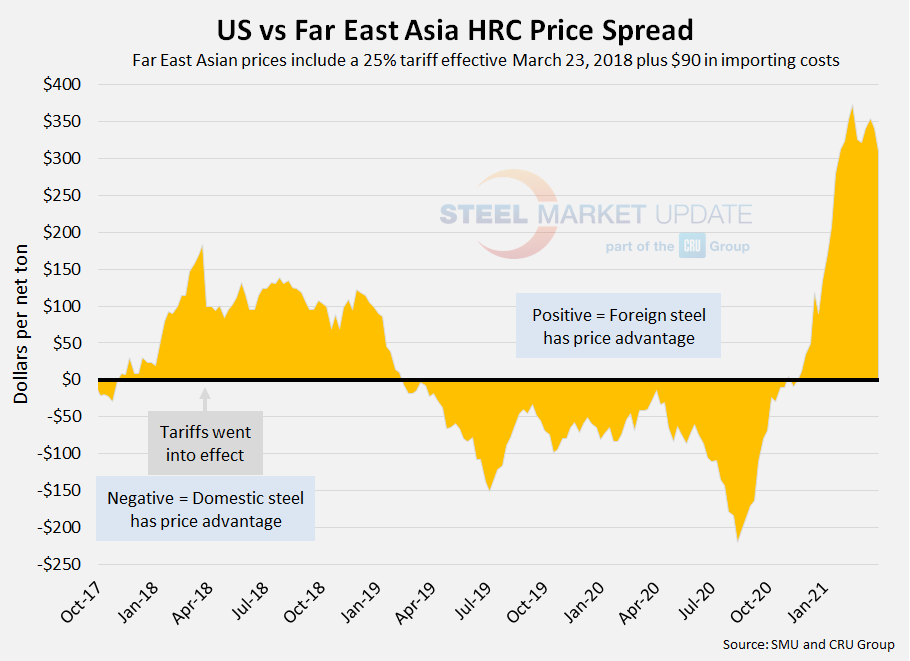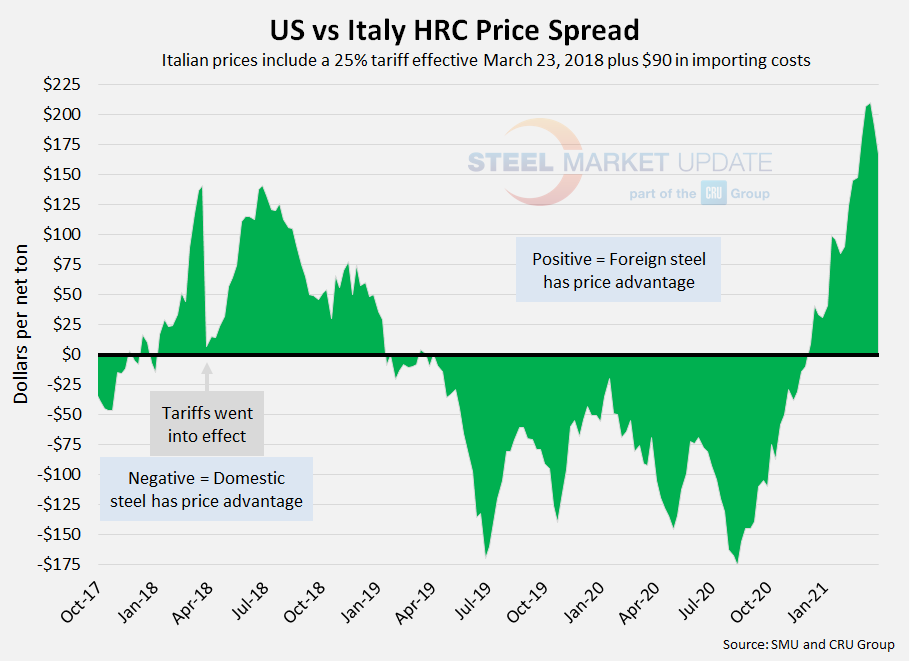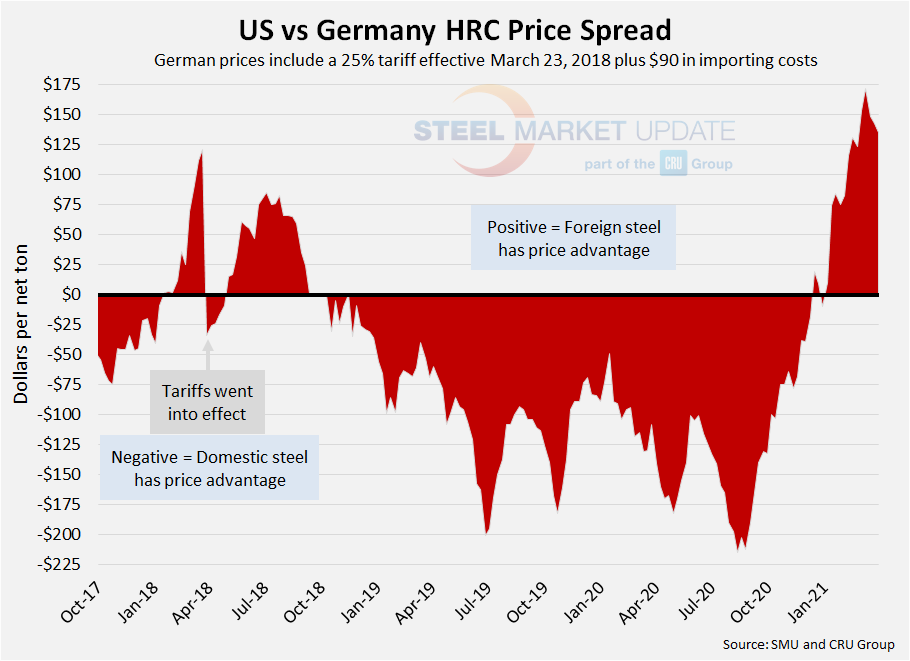Overseas

April 1, 2021
Foreign vs. Domestic HRC Prices: Imports' Appeal Remains Strong
Written by Brett Linton
The temptation to purchase foreign hot rolled over domestic steel remains high, as more U.S. buyers place orders for foreign material despite long lead times for delivery. Since mid-March, foreign steel prices have begun to increase at a greater rate compared to domestic prices, yet foreign prices still hold potential discounts of 10-24%, according to Steel Market Update’s latest foreign versus domestic hot rolled steel price comparison.
The following calculation is used by Steel Market Update to identify the theoretical spread between foreign hot rolled steel prices (delivered to U.S. ports) and domestic hot rolled coil prices (FOB domestic mills). This is only a “theoretical” calculation as freight costs, trader margin and other costs can fluctuate, ultimately influencing the true market spread. This compares the SMU U.S. hot rolled weekly index to CRU hot rolled weekly indices for Germany, Italy and Far East Asian ports.
![]() SMU includes a 25% import tariff effective on foreign prices after March 23, 2018. We then add $90 per ton to the foreign prices in consideration of freight costs, handling, trader margin, etc., to provide an approximate “CIF U.S. ports price” that can be compared against the SMU U.S. hot rolled price. Note that we do not include any antidumping (AD) or countervailing duties (CVD) in this analysis.
SMU includes a 25% import tariff effective on foreign prices after March 23, 2018. We then add $90 per ton to the foreign prices in consideration of freight costs, handling, trader margin, etc., to provide an approximate “CIF U.S. ports price” that can be compared against the SMU U.S. hot rolled price. Note that we do not include any antidumping (AD) or countervailing duties (CVD) in this analysis.
Far East Asian HRC (East and Southeast Ports)
As of Wednesday, March 31, the CRU Far East Asian HRC price increased $36 over the previous week to $744 per net ton ($820 per metric ton), up $59 per ton over two weeks prior. Adding tariffs and import costs, the delivered price of Far East Asian HRC to the U.S. is $1,020 per ton. The latest SMU hot rolled price average is $1,330 per ton, up $15 over last week and up $30 from two weeks prior. Therefore, U.S.-produced HRC theoretically is now $310 per ton more expensive than imported Far East Asian HRC, down from $341 last week and down from $354 two weeks ago.

Italian HRC
CRU published Italian HRC prices at $858 per net ton ($946 per metric ton), up $30 from last week, and up $58 from two weeks ago. After adding tariffs and import costs, the delivered price of Italian HRC is approximately $1,163 per ton. Accordingly, domestic HRC is theoretically $167 per ton more expensive than imported Italian HRC, down from $190 last week and down from $210 two weeks ago.

German HRC
The latest CRU German HRC price is $884 per net ton ($974 per metric ton), up $18 from the previous week and up $36 from two weeks prior. Adding tariffs and import costs, that puts the German price at $1,195 per ton delivered to the U.S. Therefore, domestically sourced HRC is theoretically $135 per ton more expensive than imported German HRC, down from $143 last week and down from $149 two weeks ago.

The graph below compares all four price indices and highlights the effective date of the tariffs. Foreign prices are referred to as “equalized,” meaning they have been adjusted to include tariffs and importing costs for a like-for-like comparison against the U.S. price.

Note: Freight is an important part of the final determination on whether to import foreign steel or buy from a domestic mill supplier. Domestic prices are referenced as FOB the producing mill, while foreign prices are FOB the Port (Houston, NOLA, Savannah, Los Angeles, Camden, etc.). Inland freight, from either a domestic mill or from the port, can dramatically impact the competitiveness of both domestic and foreign steel. When considering lead times, a buyer must take into consideration the momentum of pricing both domestically and in the world markets. In most circumstances (but not all), domestic steel will deliver faster than foreign steel ordered on the same day.
By Brett Linton, Brett@SteelMarkeUpdate.com






